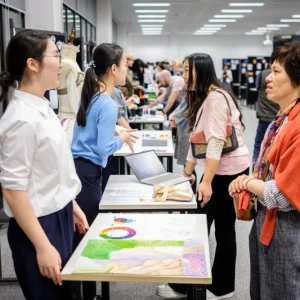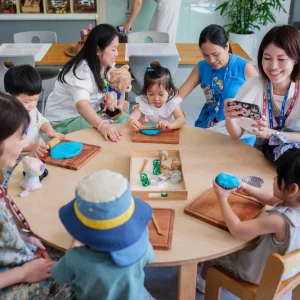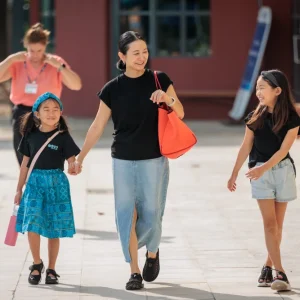Cultural awareness is essential for effective communication in our increasingly interconnected world. Understanding this term helps individuals bridge the gaps dividing people from different cultural backgrounds. It allows for deeper, more meaningful interactions and fosters respect in personal and professional settings.
This article explores the cultural awareness definition, particularly in education, and provides actionable strategies to promote it, ultimately contributing to an inclusive and respectful environment.
What is Cultural Awareness?
Cultural awareness refers to the ability to recognise, understand, and respect cultural differences and similarities. It is about becoming sensitive to how people live and interact, shaped by factors such as religion, language, customs, and traditions.

While language is often linked to cultural awareness, understanding culture goes beyond mere linguistic knowledge. Indeed, cultural awareness involves grasping the contextual meanings behind language, behaviours, and practices that may differ from our own.
One crucial distinction is between the definition of cultural awareness and cultural competence. Cultural awareness is the foundational step, focused on recognising cultural differences, while cultural competence goes a step further, equipping individuals with the practical skills needed to interact effectively across cultures.

Cultural competence builds upon awareness by fostering the application of this knowledge in real-world situations, enabling better interpersonal communication and collaboration.
Why is Cultural Awareness Important?
In classrooms, students come from diverse backgrounds, each bringing unique perspectives. Cultivating cultural awareness in education benefits students by broadening their worldview and fostering inclusivity.

Below are key reasons why cultural awareness is essential in educational settings:
- Expands Your Global Perspective: Cultural awareness broadens students’ perspectives, allowing them to appreciate and respect the lifestyles, beliefs, and practices of others.
- Encourages Unity and Inclusiveness: By recognising and celebrating differences, cultural awareness fosters an atmosphere of unity. Students are more likely to appreciate each other’s viewpoints, leading to a more cohesive and supportive learning community.
- Enhances Appreciation for Differences: Understanding various cultures leads to a deeper appreciation for diversity, allowing students to explore and connect with ideas, foods, and traditions they might not otherwise encounter.
- Respect for Diverse Cultures: Cultural awareness encourages respect for the backgrounds and practices of others. It promotes positive social interactions and prevents stereotyping and prejudice.
- Enhances Effective Communication: Understanding cultural nuances helps to avoid misunderstandings in communication, particularly in a multicultural classroom. It facilitates better engagement and mutual respect between students and teachers.
- Strengthens Self-Awareness: Learning about other cultures also encourages self-reflection. As students examine cultural differences, they gain insight into their cultural identity and how it influences their perceptions and actions.
- Encourages Embracing Diversity: When students become culturally aware, they are more likely to embrace diversity in their communities, fostering acceptance, pride, and a sense of belonging for everyone.
How To Promote Cultural Awareness
After understanding what cultural awareness is, here are practical strategies educators, students, and parents can employ to enhance cultural awareness:
Embrace Students’ Ethnic Backgrounds
Encouraging students to explore and share their cultural heritage fosters an inclusive learning environment. This process enables students to appreciate diverse traditions, beliefs, and social customs, strengthening classroom relationships.

Additionally, it highlights that all students, regardless of background, belong to a cultural framework. Teachers should try to learn and correctly pronounce student names, showing respect and interest in their origins.
Stay Sensitive to Language Needs
Non-native English speakers often face challenges in traditional classrooms. A culturally responsive learning environment values linguistic diversity and provides tailored support based on each student’s proficiency.

Supplementary materials in a student’s primary language can aid comprehension while they work towards mastering English. Ensuring that language differences are acknowledged rather than marginalised creates a more inclusive educational setting.
Give Students Freedom and Flexibility
Providing students with autonomy in their learning process enhances engagement and understanding. Encouraging them to present materials relevant to their cultural background allows diverse perspectives. Teachers can facilitate discussions and debates that foster critical thinking and cultural appreciation.

Additionally, group assignments can introduce students to different viewpoints, better preparing them for a multicultural workforce.
Foster Open Communication
Cultural backgrounds influence communication styles. Some students may avoid direct eye contact, while others may have distinct approaches to authority and group interaction.

Teachers who acknowledge these differences can build stronger relationships with their students. Regular check-ins provide an opportunity to address concerns and enhance inclusivity.
Embrace Cultural Sensitivity
Understanding and respecting students’ cultural nuances, including learning preferences and linguistic needs, enhances inclusivity. Offering resources suited to different learning styles ensures that all students have the opportunity to succeed.

Rather than rigid lectures, interactive and collaborative teaching methods can foster a more engaging and culturally sensitive learning environment.
Integrate Diversity into Lessons
Educators should design the lesson content to reflect cultural awareness. Expanding history lessons beyond a single cultural perspective and incorporating references from various backgrounds make learning more relatable.
Inviting guest speakers with diverse experiences can further enrich students’ understanding. By connecting lessons to real-world cultural contexts, educators can make learning more meaningful and inclusive for all students.

At UNIS Hanoi, we prioritise cultural awareness, recognising its importance in both academic and social development. Our curriculum and extracurricular activities create opportunities for students to learn and engage with diverse cultures.

One such initiative is the UNIS Cultural Collection, which showcases Vietnam’s rich cultural heritage. This collection provides an interactive platform for students to explore “what is cultural awareness?” through the traditions, arts, and history of Vietnam’s ethnic minorities, fostering an appreciation for cultural diversity.
UNIS Hanoi – Where Diversity and Excellence Thrive
Cultural awareness can help navigate our diverse world, particularly within the educational sector. At UNIS Hanoi, we embrace this concept fully, equipping our students with the knowledge and tools to engage respectfully with people from all cultures.

If you are interested in joining our vibrant community, we invite you to apply to UNIS Hanoi. The online application for the 2025-2026 academic year is now open. Discover “what is cultural awareness?” at UNIS Hanoi and become part of a school that celebrates diversity while striving for excellence. Apply today to start your journey with us!
Author Profile

- UNIS Hanoi is ever-evolving, but one thing that remains is our passion to nurture and equip students to be agents of change for a better world.
Latest entries
 Calendar, News and Publications30 Oct 2025What is an IB School? A Complete Guide for Parents
Calendar, News and Publications30 Oct 2025What is an IB School? A Complete Guide for Parents Calendar, News and Publications29 Oct 2025School Tour at UNIS Hanoi – A Comprehensive Guide for Parents
Calendar, News and Publications29 Oct 2025School Tour at UNIS Hanoi – A Comprehensive Guide for Parents Calendar, News and Publications28 Oct 2025How to Choose the Right School for Your Child: The 2025 Guide
Calendar, News and Publications28 Oct 2025How to Choose the Right School for Your Child: The 2025 Guide Calendar, News and Publications27 Oct 2025Student Recruitment at UNIS Hanoi: A Parent’s Comprehensive Guide
Calendar, News and Publications27 Oct 2025Student Recruitment at UNIS Hanoi: A Parent’s Comprehensive Guide